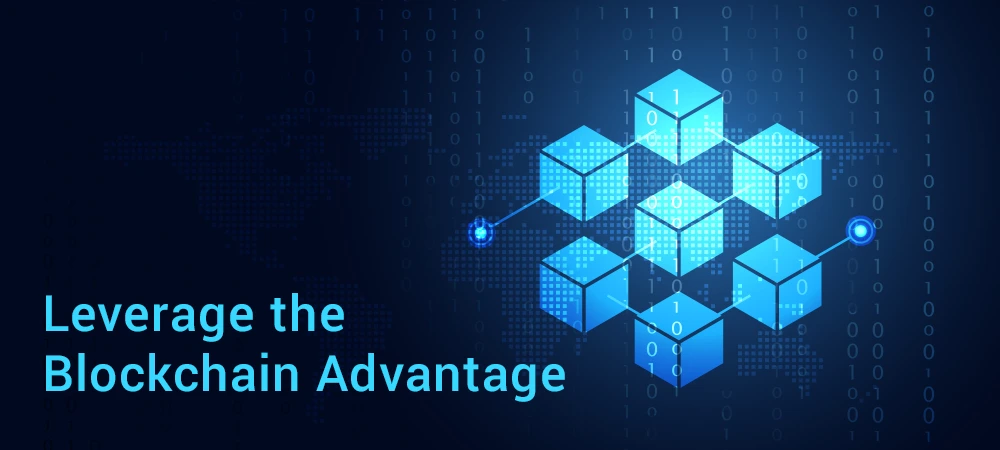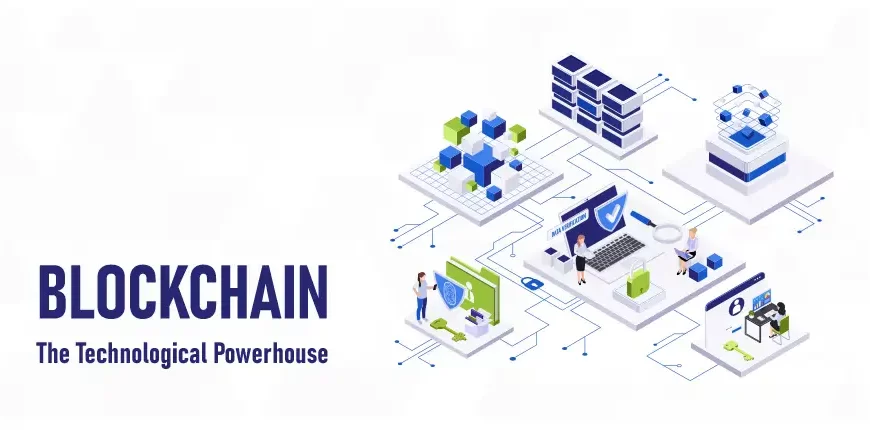The world is continuously moving forward in the category of technology. The change is insignificant that people in the past couldn’t even imagine. Blockchain is one such technology development that is happening now. It is one of the powerhouses that changing sectors and economies. But, working or understanding blockchain might feel like traversing a maze. But, readers can leave their worries as we are here to explain about Blockchain in this blog.
The source of Bitcoin and many other cryptocurrencies is Blockchain. From industries like supply chain management to healthcare, Blockchain technology can assure transparency, security, and efficiency. This can transform and give a new look to the business how we do in the digital age. So, lets dive in the quest to understand blockchain and its complexity.
What Exactly is Blockchain?
Consider a digital record book that is not held by a single company, but rather copied and dispersed over a wide network of computers. This is the fundamental premise of blockchain. Here’s an overview of its main features:
Distributed Ledger Technology (DLT)
Immutability
Cryptography
Blocks and Chains
Consider it a community record book, where everyone has a copy, and any modifications require everyone’s agreement. Blockchain’s revolutionary value stems from its transparency and security.
How Can Businesses Leverage the Blockchain Advantage?

Blockchain has far-reaching uses beyond money. Businesses from a variety of industries are seeing its potential to expedite procedures, improve security, and develop consumer trust. Let’s look into some intriguing possibilities:
Supply Chain Management
Financial Services
Voting Systems
Intellectual Property Management
Healthcare
Benefits of Blockchain Development: Why Businesses Should Consider the Leap
The advantages of implementing blockchain technology go beyond just the “cool factor.” Here are some key benefits that businesses can reap:
Enhanced Security:
Blockchain security, based on immutability and encryption, is a powerful barrier against fraud and data breaches, providing organizations with reliable protection and peace of mind.
Increased Transparency:
The distributed ledger technology provides transparency by allowing all authorized users equal access to shared data. This builds trust and responsibility across networks, resulting in increased efficiency and dependability in a variety of businesses.
Improved Efficiency
Blockchain technology automates activities, simplifies operations, and reduces manual interventions, dramatically increasing operational efficiency. Its decentralized design promotes trust and transparency, facilitating a smooth flow of transactions while lowering overhead expenses.
Reduced Costs
Blockchain’s removal of intermediaries and optimization of processes directly translate to cost savings for businesses, enhancing efficiency and profitability. This revolutionary technology fosters direct peer-to-peer transactions, reducing reliance on costly third-party intermediaries and minimizing operational expenses.
Building Trust
Blockchain’s inherent security and transparency encourage trust by creating a tamper-proof record of transactions, promoting confidence between organizations and their stakeholders. This foundation of trust facilitates smoother interactions and improves the integrity of corporate partnerships.
Concerns & Challenges Of Blockchain
While blockchain holds immense promise, there are challenges to consider:
- Scalability: Many existing blockchain platforms struggle to handle large transaction volumes, limiting their scalability for high-demand applications. This constraint emphasizes the importance of continuous innovation to improve scalability and suit the needs of various use cases.
- Regulation: As the regulatory landscape for blockchain evolves, organizations must exercise caution to ensure compliance with changing legal requirements. Navigating this changing environment is critical for mitigating risks and capitalizing on the potential provided by blockchain technology.
- Energy Consumption: While certain blockchain implementations require a substantial amount of energy, continuing research is being conducted to develop more sustainable protocols. These initiatives seek to address concerns about the environmental effects of blockchain technology.
- Technical Expertise: Many firms find it difficult to implement and manage blockchain systems because they require particular technical capabilities. This challenge underlines the importance of having access to knowledge in efficiently navigating the complexity of blockchain technology.



